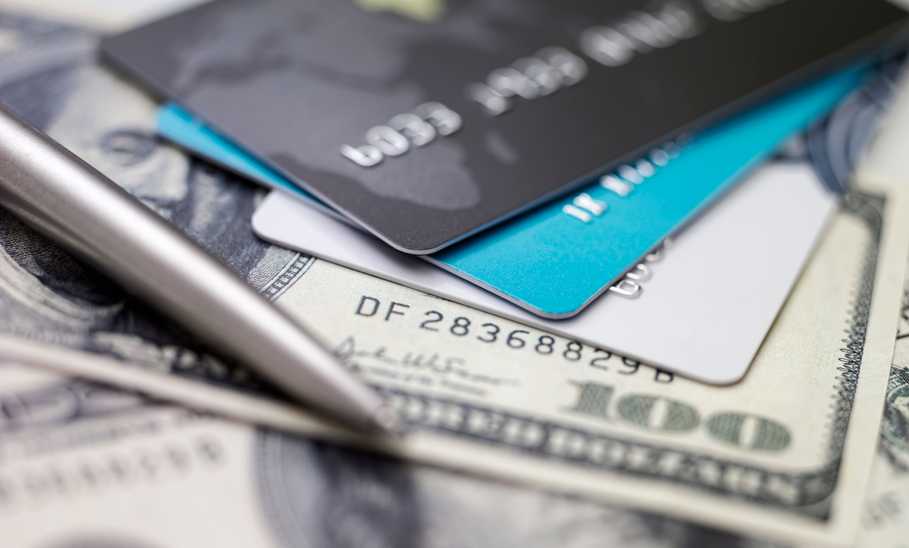How Do I Get a Higher Limit on My Credit Card?

Our evaluations and opinions are not influenced by our advertising relationships, but we may earn a commission from our partners’ links. This content is created by TIME Stamped, under TIME’s direction and produced in accordance with TIME’s editorial guidelines and overseen by TIME’s editorial staff. Learn more about it.
When you apply for a credit card, the issuer will determine the highest amount you can borrow. This amount is called a credit limit. Your limit will depend on your income, financial history, and credit score. You're more likely to get a higher limit if you have a history of on-time payments and a good or excellent credit score.
But what if you want to increase an existing credit card limit? How does the process work, and what are your chances of approval? Read on to find out.
When you apply for a credit card, the issuer looks at your gross (pre-tax) annual income and credit report. Your income is important because the lender wants to make sure you have enough money coming in to pay your credit card bill. The higher your income, the more chance you’ll be offered a higher credit limit.
Credit history and score are also important. A strong credit score can get you a higher credit limit and other perks like a lower APR and access to premium cards with generous welcome offers. The issuer will also want to know how many credit cards you currently have. Too many cards can be a red flag and cause them to decline your application.
Before requesting a higher credit limit, it’s important to consider the following:
If you’re ready to increase your credit limit, there are several ways to get the ball rolling. Most credit card issuers allow you to request a credit limit increase online or by phone. Alternatively, you might be lucky enough to get an automatic credit limit increase from your card provider.
Many credit card companies allow cardholders to request credit limit increases online. This is usually the easiest way to go about it; you just need to log into your bank using a web browser or mobile app and follow the instructions.
If you prefer to request a credit limit increase by speaking to someone, you can call the credit card company and ask about your options. Look for the customer service phone number on the back of your credit card. You can also find the number on the issuer’s website or app.
Sometimes, a credit card issuer will automatically increase your credit limit. This can happen if you’ve had the card for a while and proven that you can use it responsibly. Some cards may advertise automatic increases after the customer has owned the card for a while.
Keep an eye out for this when applying for new cards, and check your statement each month to catch any automatic credit limit increases.
A higher credit limit can help you in two ways—by improving your credit score and providing you with more purchasing power. Here’s a closer look at each of these benefits.
A higher credit limit can result in a lower credit utilization ratio, which can lead to an increased credit score. Your credit utilization ratio is the amount of credit you use as a percentage of your overall credit limit. Ideally, you should keep your credit utilization at or below 30%. That means if your overall limit across multiple cards is $10,000, you’ll want to ensure you don’t carry a balance higher than $3,000, or 30% of your available credit.
Increasing your limit on one or more cards can lower your credit utilization without paying down your balance. Of course, having too many credit cards or excessively high balances can hurt your credit score, so use your new higher limit responsibly—after all, you still need to pay off the money you spend.
A higher credit limit means you have more spending room. This can help you cover a major purchase or expense, such as an emergency home or car repair, or an unexpected medical bill.
If you’re considering requesting a credit card limit increase, it helps to be prepared. Here are some things you can do to put yourself in a better position for approval.
You should know your credit score before requesting a credit limit increase. A low credit score means it’s less likely you’ll be approved for the increase, so knowing your score beforehand can help you avoid any nasty surprises. Consider using a credit monitoring service such as Experian or myFICO to keep tabs on your credit score.
Make payments on time
Paying your bills on time is essential for a good credit score, and it’ll improve your chances of being approved for a credit line increase. Opting into automatic bill pay will help ensure you’re not accidentally missing any payments.
A high credit card balance can be a red flag for lenders. If your balance is on the higher end (more than 30% of your current limit), work on paying down that balance before applying for a credit limit increase.
It might be the right time to apply for an increase to your credit card limit if one or more of the following has occurred:
For specific eligibility requirements, contact your credit card company.
The biggest thing you can do to boost your chances of being approved for a credit limit increase is to improve your credit score. A strong credit score indicates that you can use credit responsibly and won’t go out on a spending spree once your limit is increased.
To achieve and maintain a good credit score, ensure you pay your bills on time. That includes your housing, utilities, and existing credit card bills. Payment history is the primary factor in a credit score calculation.
In addition to keeping up with payments, you’ll want to keep your credit utilization low and have a mixture of installment loans (such as student loans) and revolving credit (such as credit cards).
If the credit card issuer rejects your request for a credit limit increase without an explanation, you can contact the issuer. Common reasons requests are denied include:
If your request is denied, it’s not the end of the world. Take time to build your credit score to improve your chances the next time you apply.
If you make a purchase that puts you over your credit limit, the transaction will usually be denied. If you exceed your limit, you may be subject to late fees and a penalty APR
It’s best not to get too close to your credit limit, as it can hurt your credit score. To maintain your credit score in an acceptable range, keep your total credit utilization under 30%.
If you need to make a large purchase but don’t want to request a credit limit increase, there are a couple of options to consider.
Transferring a balance from one credit card to another would allow you to make a larger purchase on a single card instead of splitting the purchase across two or more cards. This can also increase your reward potential.
For example, if you have one card that offers 2% cash back and another with 5% cash back, transfer the balance to the 2% card and make your large purchase with the 5% card.
card_name is a solid flat-rate earnings card with annual_fee_disclaimer annual fee. Although the 1.5% cash back doesn’t seem impressive at first glance, it becomes more valuable when combined with other rewards cards from Chase that can be redeemed for a far greater value.
This card is recommended for everyday use, whether for doctor copays or big box store purchases. It can be a large earner for cardmembers who want to get the most out of their everyday spending.
Introductory Offer:
Intro Card Rewards:
After the First Year or $20,000 Spent Card Rewards:
Additional Benefits:
Member FDIC
You can also apply for a new credit card. Although not technically a credit limit increase, applying for a new card with a higher limit can achieve the same goal. If you have a strong credit history and two or three credit cards to your name, applying for a new card offers many of the same benefits that increasing the limit on your current card offers.
At the end of the day, it’s important to ask yourself whether you need a credit limit increase and, if so, whether you’re likely to have your request approved. A higher credit limit can help if you’re looking to make a large purchase or decrease your credit utilization, but it can also make it more tempting to spend money you don’t have.
If you’re confident a higher credit limit is a good idea, contact your provider about how to get one.
Credit card companies take several factors into account when deciding whether or not to increase a credit limit. These include:
If you’ve had your credit card for a few years and have been using it responsibly, your credit card provider may automatically increase your limit without your official request.
Ideally, as little as possible. To avoid damaging your credit score, keep your total credit utilization at or below 30%. That could mean using a higher percentage of your limit on one card and a lower percentage on another—as long as your overall utilization is less than 30%.
The information presented here is created by TIME Stamped and overseen by TIME editorial staff. To learn more, see our About Us page.



